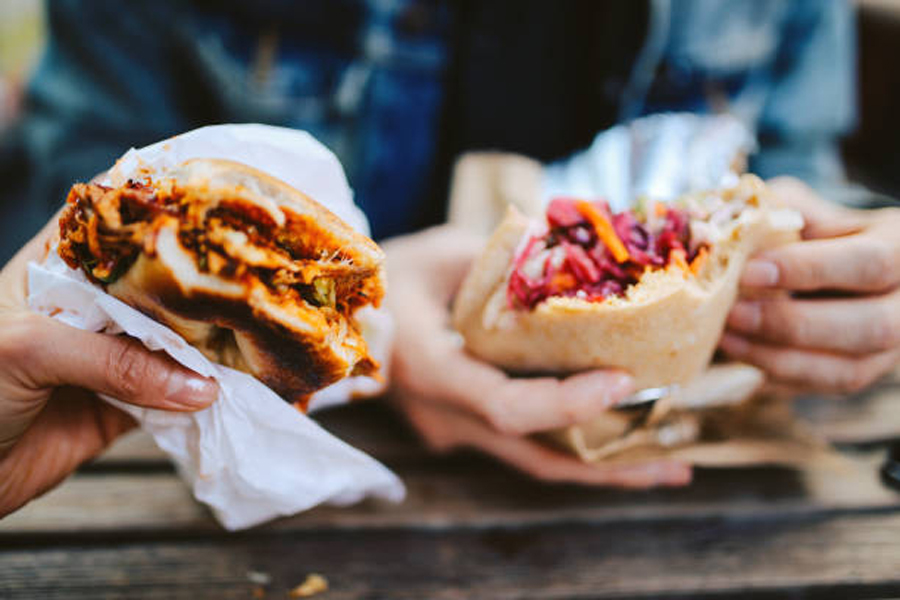
In our difficult times, students often experience anxiety and neuropsychological tension. The factors that cause them stress are different: mental stress, quarrels, the struggle for leadership, the need to concentrate as much as possible with a large flow of information, lack of systematic work in the semester, overwork during the session, etc. And if useful homework help websites for college students can cope with some part of the tasks, then only proper nutrition will help with the rest.
To get rid of depression, it is necessary to choose a proper diet, which will relieve the nervous system. Let’s talk about calming foods for students.
Stress reduction foods
Porridge
Cereals are the main source of B vitamins. It is these vitamins that are needed to support the nervous system in times of stress. There is a proven fact that with high emotional stress the need for B vitamins increases five times!
Tip: students often try to save time and cook a “quick” porridge from a bag. You should not do this. The speed of cooking is achieved by pre-processing cereals with steam. This method leads to the loss of vitamins and trace elements. Therefore, porridges that are simply brewed with boiling water will not help strengthen the nerves during stress. For this purpose, only whole grains that are cooked for a long time are suitable.
Oil
Fats are essential for the smooth functioning of the nervous system. Therefore, do not forget about vegetable oils. Moreover, it is better if it is not only sunflower oil but also, for example, olive, mustard, or corn. Animal fats are also able to support the nervous system. So from time to time, you should allow yourself not only vegetable oil but also butter. But to save your figure and not harm your cardiovascular system, you should not overdo it.
Tip: choose unrefined oils. During the production process, they are practically untreated, so they have much more vitamins than refined varieties.
Meat, Fish, and Poultry
Contain proteins, and this is the building material for all body cells, including the nerve endings that get damaged during stress.
If you like fish, your body will get healthy omega-3 fatty acids in addition to protein. They contribute to the health of the nervous system, reduce the level of harmful cholesterol in the blood. This means that these vitamins support the heart, which is particularly affected by nervous tension.
Tip: choose lean meats. You can eat any kind of fish, including fatty ones.
Dairy products
Dairy products, like cereals, are rich in B vitamins, and also help make up for vitamin D deficiency, the lack of which is associated with the occurrence of seasonal depression.
Tip: it is best to choose sour-milk products. Lacto- and bifidobacteria in yogurt improve digestion, strengthen the immune system, which is weakened by severe stress.
Fruits and vegetables
Fruits and vegetables are rich in antioxidants, vitamins A and C, which help prevent the negative effects of stress. In addition, fruits and vegetables provide the body with vegetable fiber, which is necessary for good digestion. It is no secret that digestion often breaks down under stress.
Tip: your table should have at least five portions of fruits and vegetables (one apple, carrot, banana, and so on) daily.
Berries
Berries are sweet and healthy. Raspberries, strawberries, blackberries and blueberries are optimal, fiber- and vitamin-filled, low-calorie desserts and snacks. The antioxidants in berries help prevent aging caused by chronic stress. Berries curb spikes in blood sugar, reducing cravings for sweets between meals.
Tip: in fact, it is better to prefer berries to fruit. Unlike other sweeter fruits, they do not cause fermentation in the stomach; on the contrary, they normalize digestion.
Celery
Celery is satiety and peace of mind. Celery contains tryptophan, which helps the body produce the substance serotonin, essential for good mood and sound sleep.
Tip: a few stalks of celery with peanut butter as a bedtime snack can help you fall asleep faster and not wake up feeling hungry.
Five things NOT to do when stressed
- Do NOT try to improve your mood with sweets. Sugar and fatty foods overload many internal organs, forcing them to work hard. And during stress, your body already has a hard time.
- Do NOT binge on stress. During periods of nervous tension, the body tries to make up for the lack of vitamins and minerals with the volume of food. Therefore, against stress, you often want to eat. But increasing the portions will only lead to extra pounds. So it is better to pay attention not to the quantity, but the quality of food.
- Do not run to the fridge at the first sign of excitement. Try to relax in other ways before you eat something: take a few minutes in silence, breathe deeply.
- Do NOT force yourself to eat if stress makes you lose your appetite. One or two days off will not harm your health.
- DO NOT eat automatically. Even if you are faced with the most useful and low-calorie products, try to control the volume of portions. The habit of chewing all the time is not good for your figure.
So, stress is an integral part of everyday life of every student, especially during the exam session. The reaction to stress, as well as the beginning of the work day, diet, physical activity, quality of rest and sleep, relationships with others, are components of a way of life. It depends on the student himself what kind of lifestyle he will have – healthy, active or unhealthy, passive, and, consequently, how often and for how long he will be under stress.
Foods that help with anxiety are available. Any student can prepare delicious full-fledged breakfasts or lunches from them, and some can be eaten separately. Their presence in the anti-anxiety diet will help a college learner strengthen the nervous system and keep calm in moments of increased emotional tension.
Comments
comments